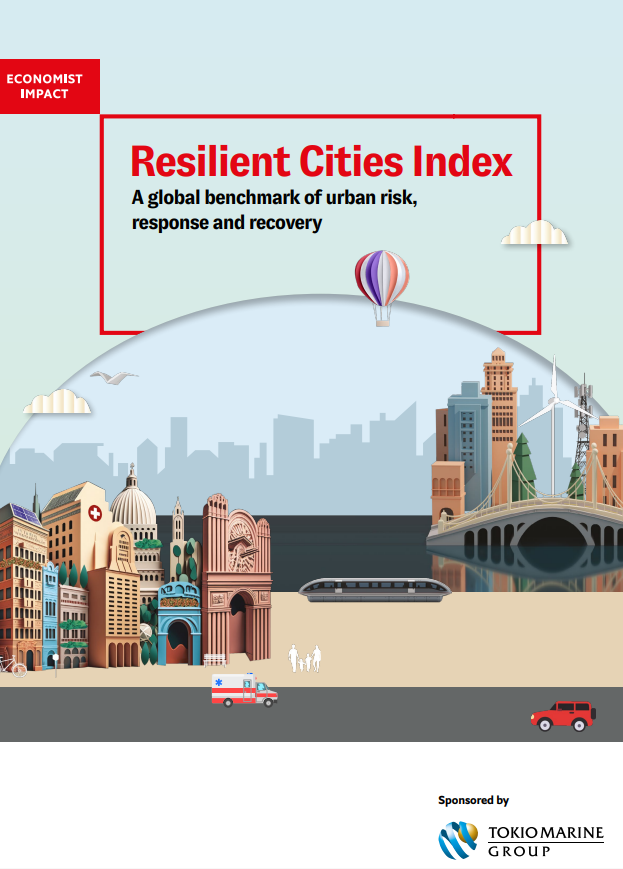Resilient Cities Index

The Resilient Cities Index serves as a thorough assessment of urban resilience, examining cities' readiness to confront shocks through an analysis of critical infrastructure, environmental factors, socio-institutional dynamics, and the economy. Economist Impact's research marks the transition from theoretical concepts to practical implementation as cities initiate plans to enhance their preparedness and resilience. Additionally, the study highlights an increasing emphasis on the interplay between resilience and sustainability. Acknowledging the intricate and dynamic nature of urban systems, the research integrates closely related subsystems into the evaluation framework.
For instance, urban climate resilience is considered alongside carbon neutrality goals, infrastructure future-proofing, and transportation electrification. The report recognises the pivotal role of socio-institutional aspects, such as effective disaster management, which relies on factors like digitalisation, inclusiveness, and a culture of readiness. Despite this comprehensive approach, the complexity of the urban system and the interdependence of indicators contribute to the research's non-exhaustive nature. In the context of urban planning and governance, the persistent challenge lies in bridging the gap between policy formulation and implementation, posing a significant obstacle to cities' efforts in building resilience. While cities worldwide acknowledge the imperative to fortify themselves against environmental, social, and economic uncertainties, translating these intentions into actionable measures remains a formidable task.
Abstract based on source.


Comments